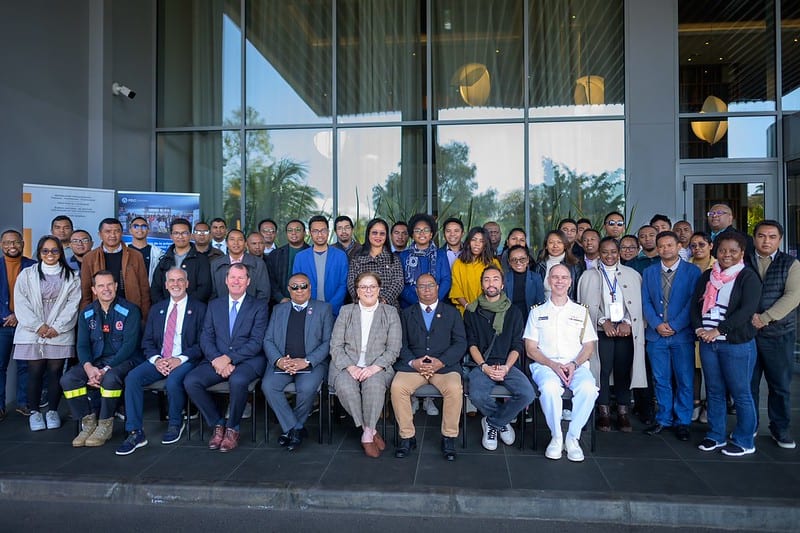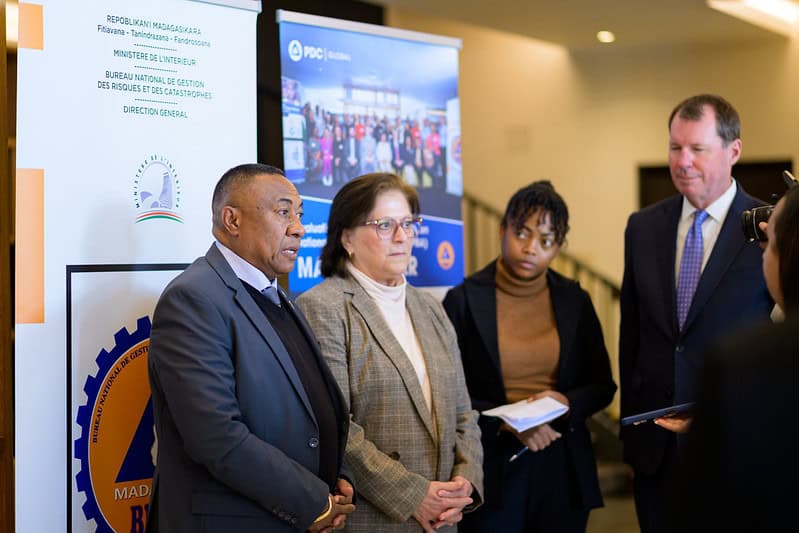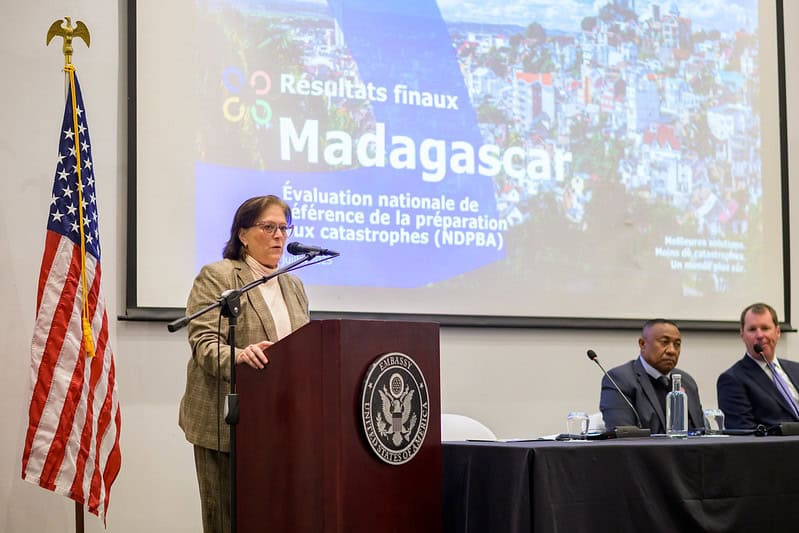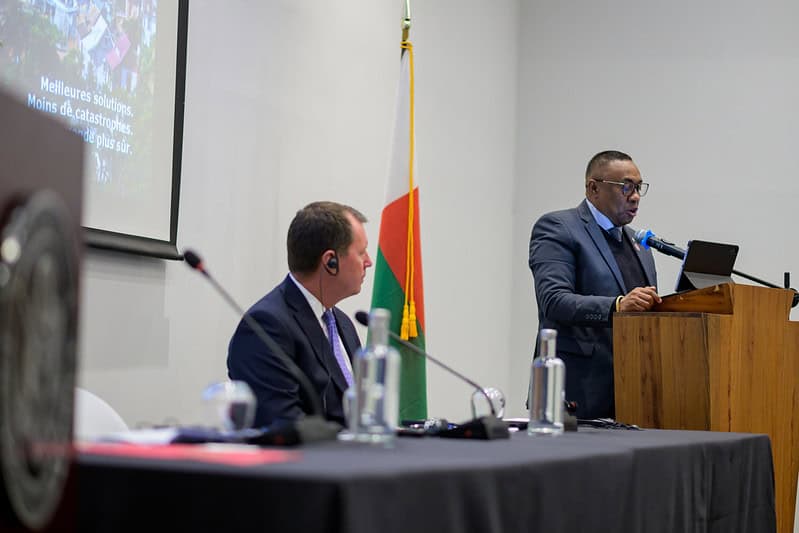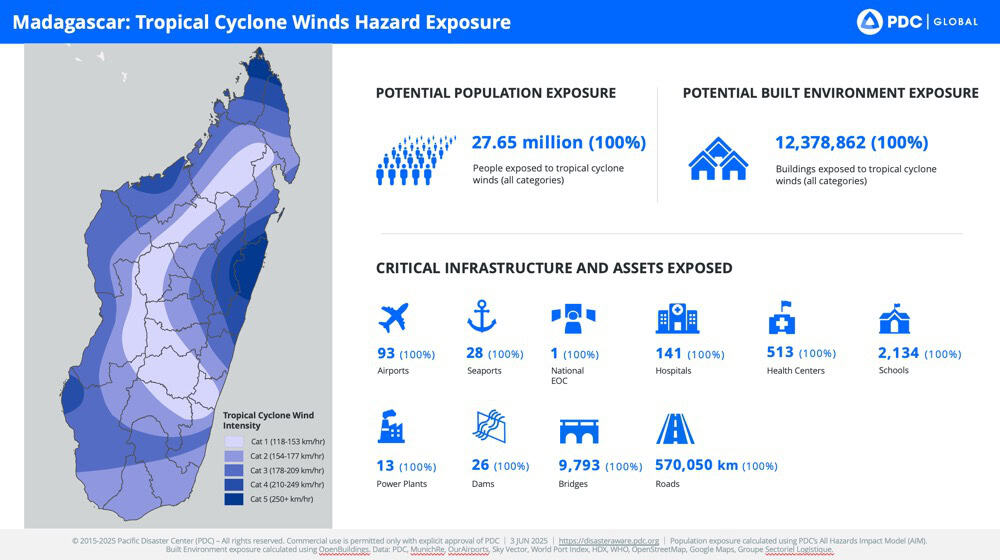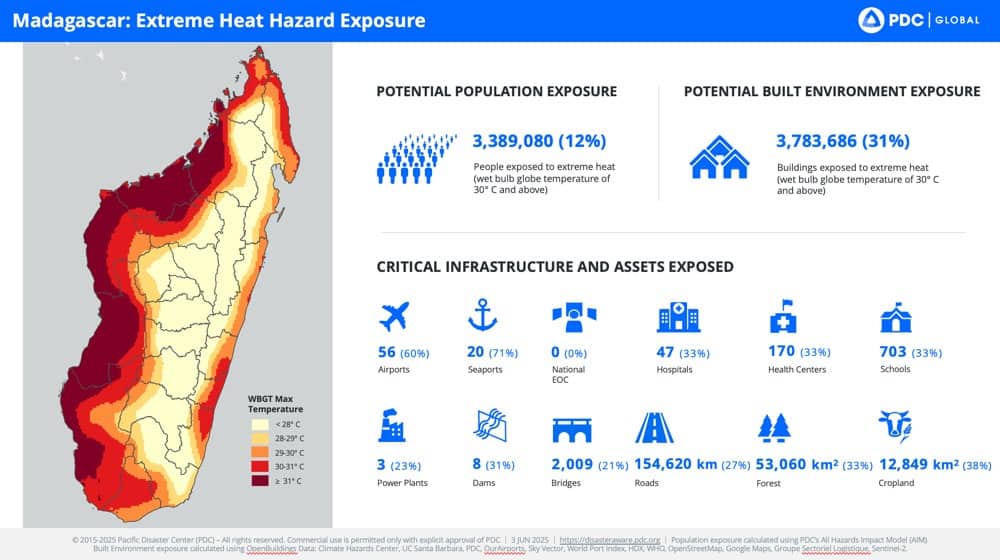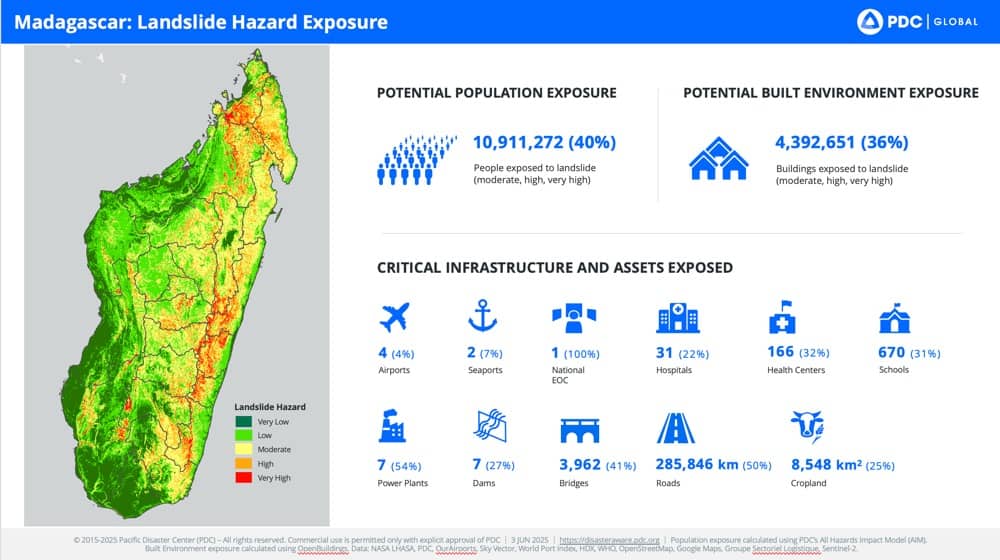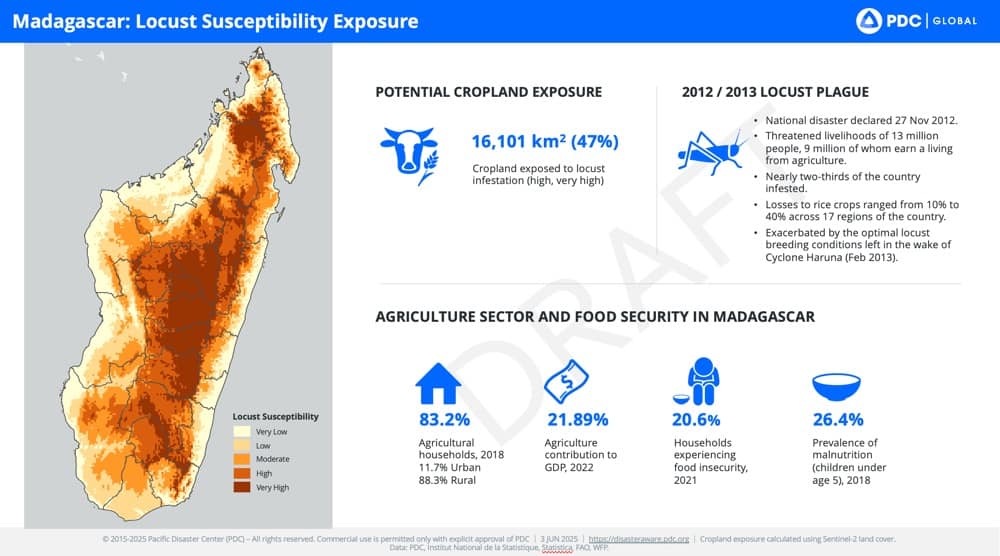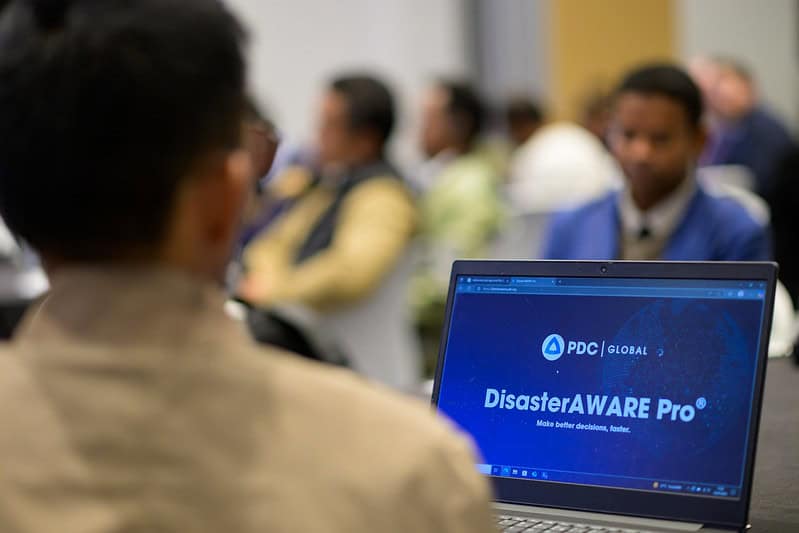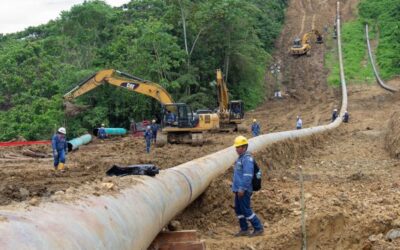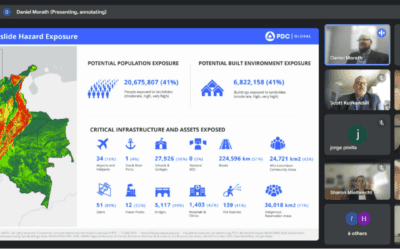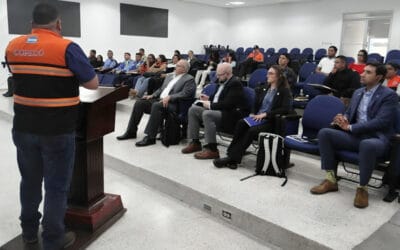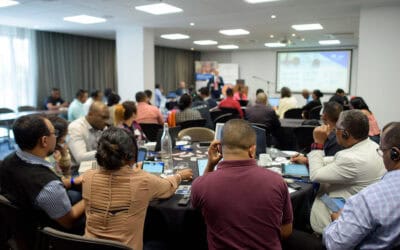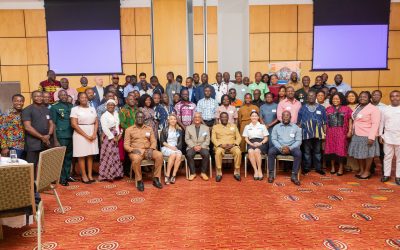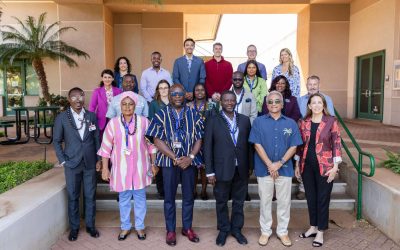As part of the national baseline assessment, PDC conducted a comprehensive, subnational-level Risk and Vulnerability Assessment, finding that Madagascar remains highly exposed to numerous hazards, including cyclones, landslides, malaria outbreaks, and extreme heat. These hazards continue to put significant pressure on the country’s natural resources, critical infrastructure, and vulnerable populations. At the same time, the assessment identified tangible opportunities to address core vulnerabilities—such as improving access to clean water, sanitation, health care, and transportation, while strengthening coping capacities at national and subnational levels.
Findings from the Disaster Management portion of the assessment point to significant constraints in funding, staffing, infrastructure, and coordination mechanisms. While existing efforts by BNGRC and its partners are commendable, many gaps must be filled in preparedness, mitigation, and response capacity leveraging a variety of strategies outlined in the final results of the national baseline assessment.
